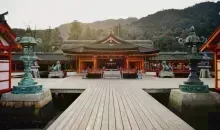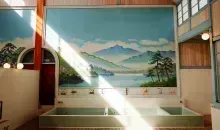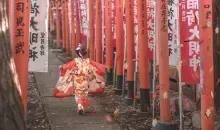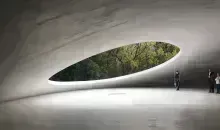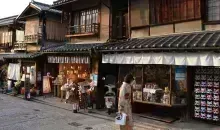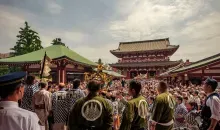Ohori Park & Garden Fukuoka
- Published on : 22/04/2019
- by : Japan Experience
- Youtube
Ohori Park & Garden Fukuoka is a large urban park that consists mostly of water, originally part of the moat system for Fukuoka Castle.
Ohori Park & Garden, Fukuoka 大濠公園
Jake Davies
Ohori Park in Fukuoka is a large urban park that consists mostly of water. "Hori" means moat in Japanese, and the large body of water was originally part of the moat system for Fukuoka Castle whose Edo Period ruins are next door in Maizuru Park.
 The large pond in Ohori Park, Fukuoka, Fukuoka Prefecture
The large pond in Ohori Park, Fukuoka, Fukuoka Prefecture
History
The park was constructed in the 1920's and is modeled on the classical Chinese garden of West Lake in Hangzhou. In the middle of the pond are three narrow islands connected to each other and to the banks of the pond by Chinese-style bridges.
 Ohori Park, a tranquil oasis in the midst of Fukuoka city
Ohori Park, a tranquil oasis in the midst of Fukuoka city
Attractions
The islands are illuminated at night and a popular romantic spot for couples.
Running around the circumference of the pond is a wide path almost two kilometers long that is very popular with joggers, walkers and strollers.
Two types of boat can be rented, swan-shaped boats powered by pedals, and small rowboats. There is also a large playground for kids. There are several cafes for refreshments and also a modern theater that has a Noh stage.
In the summer there is a big firework display and in the winter illuminations light up the park.
 The path along the islands in the middle of the pond in Ohori Park
The path along the islands in the middle of the pond in Ohori Park Entrance to the Japanese Gardens in Ohori Park, Fukuoka
Entrance to the Japanese Gardens in Ohori Park, Fukuoka
Access
1 Ohorikoen, Chuo-ku, Fukuoka-shi, Fukuoka 810-0051
Tel: 0927 41 2004
Ohorikoen subway station is just 2 minutes walk from the northern end of the park. Ropponmatsu subway station is a 10 minute walk from the southern end of the park.
 The Japanese Garden in Ohori Park, Fukuoka
The Japanese Garden in Ohori Park, Fukuoka The Japanese Garden in Ohori Park is delightful all year round
The Japanese Garden in Ohori Park is delightful all year round
Ohori Park Garden
Located at the south end of Ohori Park is a Japanese garden. Though only made in 1984 to commemorate the 50th anniversary of Ohori Park, this 12,000 square meter garden contains many of the well known traditional garden types including karesansui, the dry gravel type.
The garden is the work of Kinsaku Nakane who designed gardens at Nijo Castle, the garden at Taizo-in, a sub-temple of Myoshinji Temple both in Kyoto and the famous garden at Adachi Museum in Shimane Prefecture.
There are several ponds, streams and a waterfall, and the garden is surprisingly quiet considering the city around it. There is a large tea ceremony house and a small tea house, that are normally entered only by prior reservation but twice a month there is free entry and tea can be had for 300 yen.
1-7 Ohorikoen, Chuo-ku, Fukuoka-shi, Fukuoka 810-0051
Tel: 0927 41 8377
Open from 9 am to 5 pm. Closed Mondays.
Entry 240 yen for adults, 120 yen for children.
Right next door to the garden is the Fukuoka Art Museum, recently re-opened following major renovations. The museum's collection includes traditional Japanese arts including statuary, ceramics, calligraphy and paintings.
In addition there are works by modern masters, both Japanese and international, including Salvador Dali, Marc Chagall, Jean Miro, Yayoi Kusama, etc. A variety of special exhibitions are held throughout the year.
1-6 Ohorikoen, Chuo-ku, Fukuoka-shi, Fukuoka 810-0051
Tel: 0927 14 6051
Open 9.30 am to 5.30 pm and until 8 pm from July to October. Closed Mondays.
Entry is 200 yen, but much higher for special exhibitions.
Immediately adjacent to Ohori Park is Maizuru Park, containing the ruins of Fukuoka Castle and several stadiums and sports facilities. It is a very popular spot during cherry blossom season.
 Fukuoka Art Museum in Ohori Park, re-opened after extensive renovations
Fukuoka Art Museum in Ohori Park, re-opened after extensive renovations




